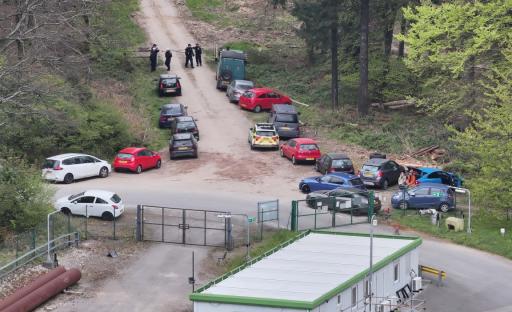It may still take “quite a long time” to resolve the case of two Canadians who have been detained in China for over two-and-a-half years, Prime Minister Justin Trudeau said Friday.
Speaking virtually at the Ryerson Democracy Forum at Ryerson University, Trudeau defended the “quiet diplomacy” approach Canada has taken to try and secure the release of Michael Kovrig and Michael Spavor, who have been accused by Beijing of spying.
“The approach on consular cases like this one, unfortunately, takes quite a long time and we don't always get to talk about what is going on,” he said. “Much of this is wrapped up in global diplomacy, quiet pressures.
“Right now the situation seems very, very locked in. And the Chinese government has been very, very strong on its pushback against every time we point out that these two Canadians have been arbitrarily detained.”
Read more: Two Michaels face ‘excruciating' wait for Chinese verdict, says former detained Canadian
Kovrig and Spavor were detained in China in December 2018 just days after Huawei CFO Meng Wanzhou was arrested in Vancouver by RCMP at the behest of American authorities.
The U.S. has charged Meng with violating sanctions on doing business with Iran and other counts of corporate espionage, and is seeking her extradition. Meng and Huawei, along with Beijing, have denied any allegations of wrongdoing.
While China has denied that Kovrig and Spavor's arrests were a retaliatory measure, officials have also suggested that the pair could be released if Meng is allowed to return home to China and the case against her is dropped. Canada has refused to entertain such an exchange.
Trudeau on Friday repeated past points he's made about the importance of not caving to the demands of China or other countries in order to secure the releases of detained Canadians, saying “everyone becomes more at risk” if he were to do so.
Read more: Prepare ‘for the worst' ahead of Michael Kovrig, Michael Spavor trials: experts
He said he intends to speak with U.S. President Joe Biden and other leaders at the G7 summit next week about forming a united front against such coercive diplomacy.
“There's a lot of momentum, a lot of pressure, and we're working very, very hard on this,” he said.
Kovrig and Spavor faced separate trials in March on charges of espionage, and are still awaiting their verdicts while in solitary confinement. Experts have said the chance of conviction in such cases is “very, very high, usually around 99 per cent.”;
Biden has publicly called for the pair's release and has reaffirmed his commitment to stand with Canada on the issue in multiple calls with Trudeau.
The prime minister was also pressed Friday on his reluctance to label China's documented human rights abuses against the ethnic Muslim Uyghur population in Xinjiang as a genocide.
MPs passed a Conservative motion in February recognizing the label. The Liberal caucus abstained from the vote, however, with experts noting it would have further soured Canada-China relations if Trudeau's government had supported the motion.
Trudeau said Friday that “determinations of genocide are not things to be taken lightly,” and that he did not want to “devalue” the weight that the label “absolutely should have.”
Yet he said Canada would continue to join international efforts to put pressure on China, particularly with the Winter Olympics approaching next year.
“It would be easy for China … to shrug off what any one country, including just the U.S. alone, says,” he said. “But when the global community comes together, that starts to shape their own calculations. And that's certainly something that we are working on to be very effective.”



